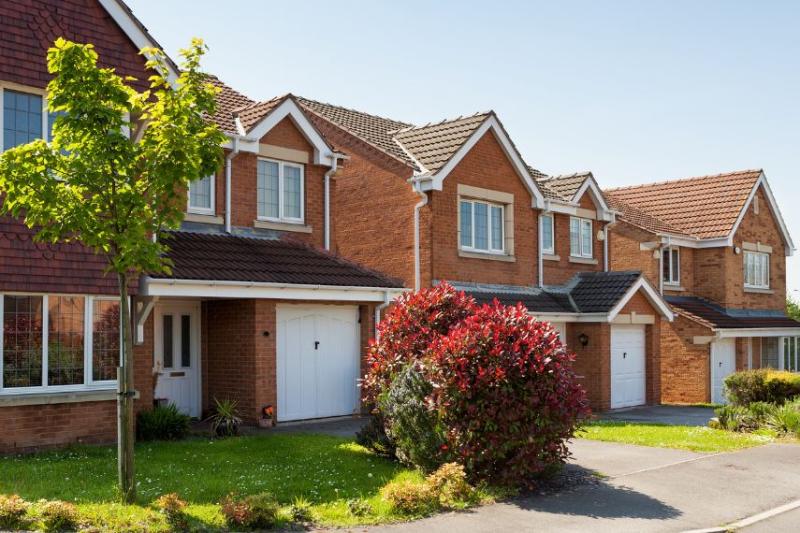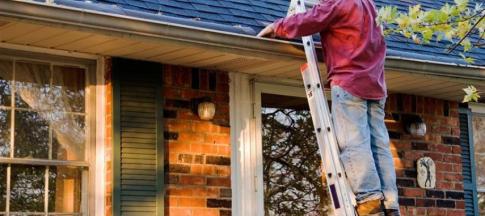
Is your home going to be empty because you’re on an extended holiday? Or because you’re away looking after a family member?
We know it can be confusing knowing when you need to insure an empty home.
To help you avoid leaving your home unprotected, here's everything you need to know about unoccupied house insurance.
What is unoccupied home insurance?
Unoccupied home insurance is simply home insurance for when no-one's living in it. It covers you for all the same things your standard home insurance does, like theft, damage and fire.
Your insurer will usually cover up to a certain amount of time. If it’s going to be unoccupied permanently or for a long period, you might need to find specialist insurance.
What’s the difference between vacant and unoccupied?
An unoccupied property is when no-one is living there at the moment, but there's still belongings and maybe furniture inside.
A vacant property is completely empty, with no belongings inside and no-one living there.
What does unoccupied home insurance cover?
Whether it’s part of your standard home insurance policy or you’ve chosen specialist unoccupied property insurance, it can cover things like:
- fire and smoke damage
- burst pipes
- damage caused by extreme weather - floods and storms
- vandalism and squatters
- theft
This means you can keep protecting your home, even if it’s empty.
If you’re insured with us, check your policy book to find out exactly what’s covered. Remember, policy limits and exclusions apply.
What’s not covered by unoccupied home insurance?
There are a few general things your unoccupied home insurance won’t cover:
- Malicious damage or theft if your home was left unlocked – it's really important you lock all windows and doors before going away.
- Damage caused by poor maintenance – you need to keep your house in a good state all year round, even if you’re not living there. Read our home maintenance checklist.
- If you go over your time limit – if your agreed limit is 60 days and your home is left unoccupied for longer, you might not be able to make any claim if anything happens.
If you’re insured with us, check your policy book for a full list of what’s not covered.
When would I need unoccupied home insurance?
You might need unoccupied home insurance for lots of different reasons.
Doing renovations
If you’re doing renovations to your house, you might need to move out temporarily while you get them sorted.
In that case, you might need insurance while your home is empty.
Remember, you need to let your insurer know about any major renovations.
While you’re waiting for a home sale to go through
If you’ve moved into a new home but haven’t sold the last one yet, it might be sitting empty for a while.
Going on holiday or to work abroad
Sometimes, you might be away travelling for an extended time or working abroad for a few months.
If it’s a holiday home or second property
You might have a holiday home in another part of the country, or another home that isn’t used all the time.
Long-term medical care
If you need any inpatient or long-term medical care, your home might be empty while you’re not there.
For example, people who have organ transplants or serious surgeries might need to stay in hospital for weeks.
How much is unoccupied home insurance?
The cost of your insurance will always depend on things like:
- the type of property
- if you’ve made any previous claims
- the area you live in
- the size of your house
If you need to have specific unoccupied home insurance because your home will be empty for a while, it can be more expensive.
That’s because:
- an empty house could attract unwanted attention from vandals or squatters
- you might not catch damage or deal with it early enough before it becomes a problem
When people are living in the house, it’s much safer and less of a risk to insurers. That’s because there’s someone to limit any damage and deter vandals.
How can I get cheaper insurance for my unoccupied property?
There are a few ways you can bring down the cost of your home insurance.
Improve your security
If you install some security measures, the price of your insurance could go down.
That’s because your home is less likely to get broken into, which means it’s less likely you’ll need to claim.
It’s a good idea to:
- make sure your home has good quality locks fitted
- invest in a good burglar alarm – read our guide to home security and alarms
- get motion sensor lights for your garden
Pay upfront
You can choose to pay for your home insurance annually, rather than in monthly payments.
If you can afford to pay the lump sum, it’s actually cheaper than paying monthly. That’s because you don’t need to pay interest.
Choose a higher excess
You can choose a higher voluntary excess. This is an amount you choose to pay if you need to make a claim, on top of your compulsory excess.
If you choose a higher voluntary excess, your monthly payments might be lower. Just make sure it’s an amount you can actually afford in case you do need to claim.
Do I need to tell my insurer if my home is unoccupied?
You should let your insurer know if your home is going to be unoccupied for longer than your agreed time limit. If you don’t, you could risk invalidating your insurance.
For example, if you needed to make a claim, we might not be able to accept it if your home’s been empty for more than your agreed time limit. That means you could be left out of pocket.
Does Admiral offer unoccupied home insurance?
We do, yes! Our standard home insurance does cover unoccupied properties, but only up to a specific limit.
Read more about our home insurance. Remember, policy limits and exclusions apply.
How long can my house be unoccupied for?
Every insurer is different, but it’s generally around 30 to 60 days.
Our standard limit is 60 days. If you do need to leave it empty for longer, let us know and we might be able to bump up this limit.
If you need to leave it for significantly longer than this, you might need to find a specialist home insurer to cover you.
Unoccupied home insurance for landlords
If you’re a landlord, your rented home might be unoccupied for short periods in between tenants.
Make sure you know your unoccupancy limit. If it’s going to be empty for longer than that, speak to your insurer right away to see if you can extend your cover.
Read our guide to unoccupied landlord insurance.


